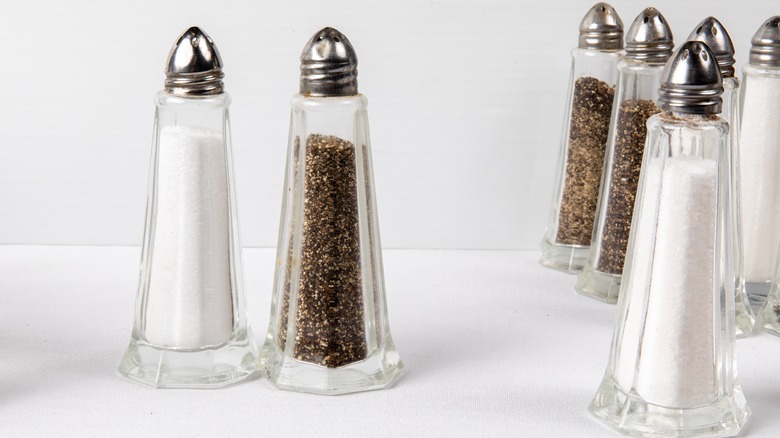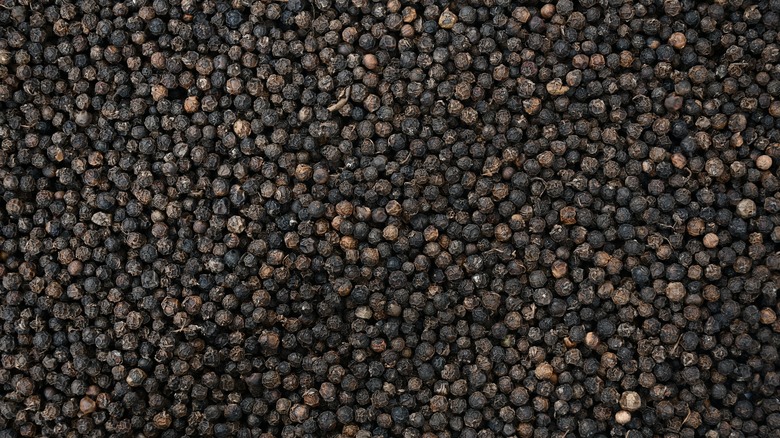There Was Basically A Monopoly On Black Pepper During The Middle Ages
Alongside salt, black pepper is common on most people's tables in the United States, but looking throughout history, the spice wasn't always so readily available to all socioeconomic classes. In fact, during the Middle Ages, pepper and other spices were a luxury primarily enjoyed by the affluent. There was even a monopoly on black pepper thanks to two warring Italian cities, Venice and Genoa.
According to Smithsonian Magazine, black pepper was "the spice that built Venice." During the Medieval Era, spices such as black pepper were in high demand and fetching exorbitant prices, leading to a flourishing spice trade. Venice became the hotbed of trade, where spices such as pepper were unloaded in the city and then shipped out and traded to the rest of Europe. Black pepper was so expensive it was once even used as currency.
The Genoese also emerged as a naval force in the Middle Ages, which positioned them to have considerable sway in the lucrative black pepper market as well (via Medievalists.net). Of course, this led to some fierce competition among these two Italian city-states as each inevitably sought full control over the spice trade routes, ultimately leading to a war in the 1300s that Venice won, securing a total monopoly over the pepper and spice trade (per Britannica).
The battle for pepper dominance continued
Both empires rise and monopolies fall. Venice's monopoly on the spice trade and pepper was soon threatened by powers in both Europe and the Middle East. In Europe, Portuguese explorer Vasco da Gama sought out a sea route to India in his quest for pepper and other spices in the late 1400s. Establishing a route around the Cape of Good Hope in Africa, Portugal gained an upper hand in the spice trade and took trade away from the Italian city. Meanwhile, Venice also had to deal with the rise of the Ottoman Empire as well.
When the Ottoman Empire established its influence over the trade in the 16th century, it challenged Venice's hold over the region, contesting much of the routes that once made the city flourish. While the Italians tried to hold onto their influence, they no longer had the same sway that they once did (via World History Encyclopedia). Through the ensuing years, the French, the Dutch, and the English would all cut away Venice's monopoly on the trade as well, ending it for good. In the present day, black pepper is now part of the globalized trade network and is most commonly grown in Asian countries including India, Vietnam, China, Malaysia, Indonesia, Sri Lanka, and also Brazil.

